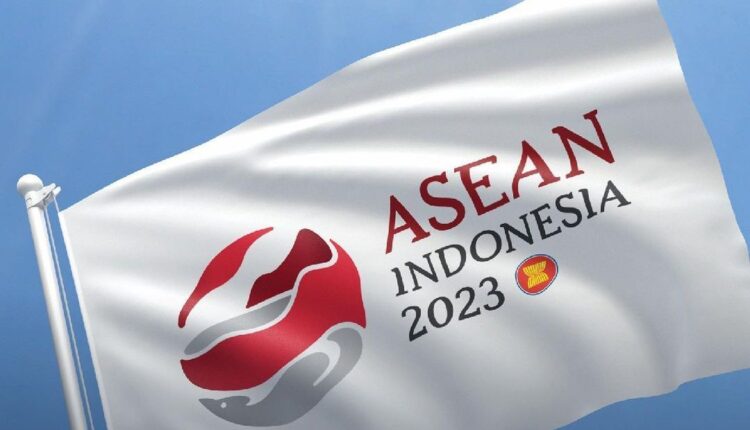Indonesia Encourages Nuclear Proliferation at the ASEAN Summit Series
By: Mika Putri Larasati )*
Nuclear Weapons are a security threat that cannot be underestimated. Moreover, the impact of nuclear can damage the environment. Therefore, Indonesia feels insecure with the presence of nuclear weapons in the surrounding area.
Minister of Foreign Affairs (Menlu) Retno Marsudi in her remarks at the Southeast Asia Nuclear Weapon Free Zone Commission (SEANWFZ) meeting forum. The forum was also attended by a delegation from Timor Leste Bendito dos Santos Freitas, where for him it was the first ASEAN meeting forum.
On this occasion, Retno said that the risk of using nuclear weapons today is higher than at any time in recent history. He also emphasized that his party continues to hear warnings about the possible use of nuclear weapons.
The Indonesian diplomat said that Indonesia saw nuclear power as a terrible and deadly weapon.
According to him there is no weapon more powerful and destructive than nuclear weapons and with nuclear weapons only one miscalculation away from the apocalypse and global catastrophe.
Foreign Minister Retno added that maintaining peace and stability in the region is a shared priority. This is the foundation for turning this region into an Epicentrum of Growth. Therefore, Southeast Asia should be protected as a nuclear weapon-free area. Moreover, SEANWFZ has contributed to global nuclear disarmament efforts. Yet after 25 years of signing the SEANWFZ treaty protocol, no nuclear-armed state has signed it.
In the forum, Retno said that for Indonesia, moving forward was the only option. The threat is imminent, so it can no longer wait. According to him, there would be a big danger if a country in the Southeast Asian region had nuclear weapons. Because a little misunderstanding will trigger a global disaster, even the end of the world. Therefore ASEAN must become a unifying front in the face of a nuclear-armed country.
The recent geopolitical and global situation has drastically increased the risk of using nuclear weapons. Even the threat of the proliferation of nuclear weapons can be seen in the Southeast Asian region. The minister who has studied studies on human rights at the University of Oslo said that the Asean region cannot be completely safe from nuclear weapons.
Retno also invited the ASEAN Foreign Ministers in the forum to act more decisively and seek the best steps to prevent a threatening nuclear disaster.
Of course, the small things that obscure the bigger picture cannot be tolerated. Retno also stressed that Indonesia was determined to continue advancing in pushing for a nuclear-free Southeast Asian region.
ASEAN must pay attention to human rights issues, especially since this issue is quite an important issue in Southeast Asia. So that the Association of Nations in Southeast Asia must not ignore this issue in their respective regions.
As Chair of ASEAN this year, Indonesia also recalled that differences among ASEAN members should not be a reason to leave human rights issues behind. This is because this issue is one of the most urgent in Southeast Asia.
During the meeting, the Foreign Ministers from ASEAN emphasized the political will to encourage accession to the SEANWFZ Treaty Protocol by nuclear-weapon states. The meeting also discussed the implementation of the review of the SEANWFZ Treaty Protocol action plan. Apart from that, the foreign ministers also agreed to assign a working group to discuss this issue further. The meeting also succeeded in adopting the concept note on the Possible Joint Initiatives of OPANAL and ASEAN in 2023.
It should also be noted that there are actually many types and sizes of nuclear weapons, but in the modern version they function by triggering a fission reaction. This fission reaction is sometimes referred to as an atomic bomb, which is similar in type to the bombs that destroyed Hiroshima and Nagasaki with a strength of between 15 and 20 kilotons of TNT. Meanwhile, many modern weapons are more dangerous than the Hiroshima and Nagasaki bombs.
In addition, nuclear weapons are also capable of spewing radioactive material up to the stratosphere, which is the middle part of the atmosphere, thus enabling a global impact. The level of radioactivity depends of course on whether the nuclear bomb was detonated in an explosion in the air or on the ground. If it were detonated in the air, of course the global impact would be worse but the direct effect at zero point could be more muted.
Moreover, the risk of radioactivity is the most severe, 48 hours after the explosion. So that people who are still alive will be affected, one of which is the risk of getting cancer for the rest of their lives.
Indonesia’s efforts and firm stance show that Indonesia’s leadership as Chair of ASEAN has concern for the safety of Asean countries against the nuclear threat. Rejection of nuclear weapons not only saves humanity but also prevents environmental disasters resulting from nuclear misuse.
)* The author is a contributor to Nusantara Reading Room
